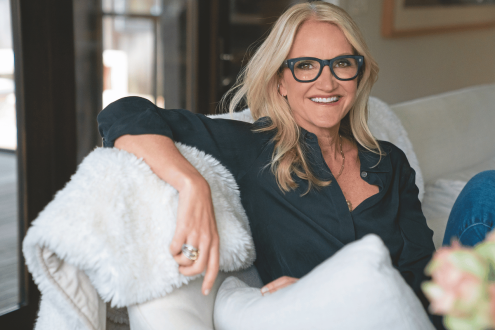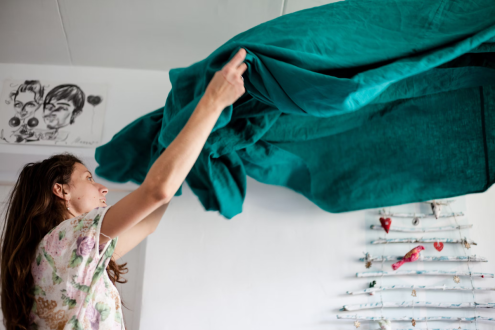Let’s play
Rather than a distraction in our lives, play should be an essential part, says Emma Cook

As we become older and busier, the opportunity to play diminishes and we begin to view the idea of spontaneous pleasure as a frivolous extra, a distraction from ‘real’ life.
Yet play is important for emotional and intellectual development. According to the California-based National Institute For Play, that ability to let go, explore and push boundaries can help us solve problems, while doing things with our hands (modelling clay, painting eggs) helps our brains find solutions. Genuine play can also allow us to enjoy the moment rather than focus on the end goal. Or, as Dr Stuart Brown, the institute’s founder, says, ‘the opposite of play is not work, it’s depression’.
Children learn about the world through exploration, role play and imagination. As we grow towards adulthood, we become less spontaneous and more self-conscious. It is this self-awareness and fear of judgement that inhibits a desire to play, yet this desire is very important in adulthood if we want to experiment, explore and push boundaries. Tim Brown, CEO of global design consultancy Ideo, places great emphasis on the connection between childhood play and creative thinking.
That childlike impulse to experiment and continually ask questions is crucial for adult creativity. Children are more engaged in open possibilities, says Brown. They look at an old cardboard box and ask not just ‘What is it?’ but ‘What can it do?’ Tapping in to that childlike experimentation to encourage our creativity is something he refers to as ‘serious play’.
To illustrate these connections, he suggests a simple exercise. ‘If you’re in a group, take it in turns to make quick sketches of one another and note your reactions. What you’ll hear is lots of people saying sorry and plenty of embarrassment,’ he says. ‘This is because we fear the judgement of our peers. Ask kids to do the same exercise and there’ll be no embarrassment at all.’ ‘It’s a playful activity that we need to re-learn,’ says Brown. ‘The adult desire to be original and self-edit just isn’t that productive. Instead, going for it like a child and getting something into the real world quickly, whether it’s a drawing, prototype or concept, is a much more creative form of play.’
Counter-intuitive as it may seem, cultivating a sense of spontaneity in our adult lives does take some careful planning. As Brown says, ‘we need rules to break rules’. Two rules that he employs in his creative meetings are ‘Defer judgement’ and ‘Go for quantity’. Staff are encouraged to write down lists of ideas without self-editing with the aim, Brown says, ‘of quickly getting ideas on the table’.
Even if there are rules to encourage our playful side, all forms of play require an emotional letting go — whether it’s laughing, horsing around with friends, flirting or teasing. These are moments when the intellect — and that judgemental inner voice — are quiet, moments that become crucial for forging bonds of trust. ‘Many people have spoken to me of their sadness that they no longer “play”,’ says psychotherapist Martin Lloyd-Elliott. ‘But it is something you can rediscover,’ he says.
What we miss is the playfulness of a team sport where we can feel part of a group and compete without taking ourselves too seriously. Card games and mahjong are traditional forms of adult play that have an almost sacred place in the players’ week, while reading groups offer opportunities for connecting, expressing yourself and exploring different ideas in an intimate, supportive atmosphere. ‘You can seek play in many areas of your life, whether it’s sport, cooking or doing the crossword — as long as there’s a playful aspect to the task and you’re not spoiling it by judging,’ says Lloyd-Elliot. ‘With judgement comes criticism — the enemy of play.’
Photograph: Jupiterimages









